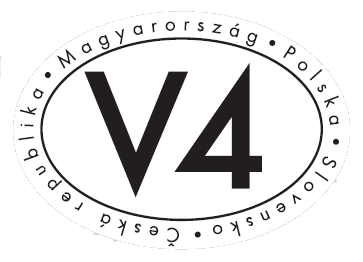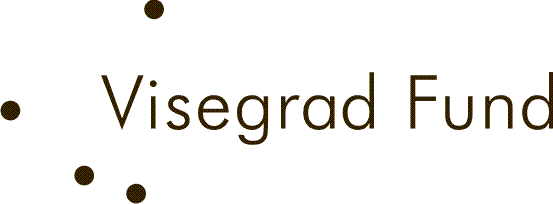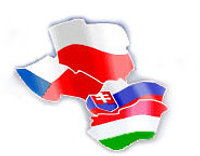Project Publications
| Book 1 | Book 2 | Book 3 | Book 4 | Book 5 | Book 6 | conference articles in journals |
The reserach results have been published as a research monograph and scientific books in 2014 as well as in partner journals:
Bartha, Z., & Gubik, A. S. (2014). Specifics of International Business Competitiveness in Visegrad Countries – Qualitative Analysis of Selected Case Studies (chapter 7) In: A. Duréndez & K. Wach K. (Eds.), Patterns of Business Internationalisation in Visegrad Countries – In Search for Regional Specifics. Cartagena: Universidad Politécnica de Cartagena (ISBN: 978-84-942562-0-2).
Full text: pdf (free download)
Abstract
Chapters 7 bring in-depth outlook on selected qualitative and quantitative issues by exploring and explanation selected issues of international business in Visegrad countries.
References
Balogh, T. (1963). Unequal Partners 1-2. Oxford: Blackwell.
Barro, J.B. (1998). Determinants of Economic Growth: A Cross-Country Empirical Study. Cambridge, MIT:MA Press Books.
Bartha, Z., Gubik, S. A. & Tóthné Szita, K. (2013). Intézményi megoldások, fejlődési modellek (Institutional solutions, development models). GNR Szolgáltató és Kereskedelmi Bt., Miskolc.
Bhagwati, J. (1958). Immiserizing Growth: A Geometrical Note. The Review of Economic Studies, 25(3), pp 201-205.
Boeke, J.H. (1953). Economics and Economic Policy of Dual Societies. New York, NY: Institute of Pacific Relations.
Christiansen, H. (2011). The Size and Composition of the SOE Sector in OECD Countries. OECD Corporate Governance Working Papers, No. 5, Paris: OECD Publishing.
Coase, R.H. (1937). The Nature of the Firm. Economica 4(16), pp 386-405.
Concept, Indices and Ideology of “National Competitiveness”. Magyar Tudomány, 2012 June, pp 680-692.
Czakó E. (2003). Have Competitiveness Research Projects Brought a System Paradigm Shift? Society and Economy, 25(3), pp 337-349.
Domar, E. (1947). Expansion and Employment. American Economic Review, 37(1), pp 343-355.
Emmanuel, A. (1972). Unequal Exchange: A Study of the Imperialism of Trade. New York: Monthly Review Press.
Ferge, Zs., Sik, E., Róbert, P., Albert, F. (1997). Social Costs of Transition. International Report http://fergezsuzsa.hu/docs/social_costs_of_transition.pdf
Freeman, C. (1987). Technology Policy and Economic Performance: Lessons from Japan. London: Pinter Publishers.
Furtado, C. (1970). Economic Development of Latin America. London: Cambridge University Press.
Gallup (2012). Gallup World Poll http://www.gallup.com/poll/world.aspx?ref=b
Hamilton, A (1791). Report on Manufactures. Philadelphia.
Harrod, R.F. (1948). Towards a Dynamic Economics. London: MacMillan.
Hodgson, M.H. (2006). What Are Institutions? Journal of Economic Issues, 40(1), pp 1-25.
Keynes, J.M. (1936). The General Theory of Employment, Interest and Money. London: MacMillan.
Krueger, A.O. (1974). The political economy of the rent seeking society. American.
List, F (1841). Das Nationale System der Politischen Ökonomie. Cotta'schen Verlag, Stuttgart.
Lucas, R.E. (1988). On the Mechanics of Economic Development. Journal of Monetary Economics, 22(1), pp 3-42.
Marshall, A. (1890). Principles of Economics, 1 ed., London: Macmillan.
McClelland, D.C. (1957). Community development and the nature of human motivation. Cambridge, MA: Harvard University.
Meier, G.M. (1964). Leading Issues in Economic Development. New York, NY: Oxford University Press.
Myrdal, G. (1957). Economic Theory and Underdeveloped Regions. London: Gerald Duckworth.
North, D.C. (1993). Institutions, institutional change and economic performance. Cambridge: Cambridge University Press.
Novotný, V. (ed.) (2013). From Reform to Growth. Managing the Economic Crisis in Europe. Brussels: Centre for European Studies, Eburon Academic Publishers.
OECD (1992). Programme on Technology and the Economy.
OECD (2013a). Government at a Glance 2013 OECD Publishing. doi: 10.1787/gov_glance-2013-en
OECD (2013b). Revenue Statistics 1965-2012 OECD (2013), Revenue Statistics 2013, OECD Publishing. doi: 10.1787/rev_stats-2013-en-fr
Porter, M.E. (1990). The Competitive Advantage of Nations. Harvard Business Review, 68(2), pp 73-91.
Prebisch, R. (1964). Towards a new trade policy for development. New York, NY: United Nations.
Ricardo, D. (1817). On the Principles of Political Economy and Taxation. London: John Murray.
Romer, P. (1986). Increasing Return and Long Run Growth. Journal of Political Economy, 94(5), pp 1002-1037.
Schumpeter, J.A. (1934). The Theory of Economic Development: An Inquiry Into Profits, Capital, Credit, Interest, and the Business Cycle. Cambridge: Harvard University Press.
Simon, H.A. (1957). Models of Man. New York, NY: Wiley.
Singer, H.W. (1964). International Development: Growth and Change. New York, NY: McGraw-Hill.
Smith, A. (1776). Enquiry into the Nature and Causes of the Wealth of Nations. Edinburgh: J.R. McCulloch.
Solow, R. (1956). A Contribution to the Theory of Economic Growth. Quarterly Journal of Economics, 70(1), pp 65-94.
Szentes T. (2011). Fejlődés-gazdaságtan (Development economics). Budapest: Akadémiai Kiadó.
Szentes T. (2012). A „nemzeti versenyképesség” fogalma, mérése, ideológiája.
Tullock, G. (1967). The Welfare Costs of Tariffs, Monopolies and Theft. Western Economic Journal, 5(3), pp 224-232.
Tullock, G. (1993). Rent Seeking. Brookfield: Edward Elgar Publishing.
Veblen, T. (1919). The Place of Science in Modern Civilization. New York: B.W. Huensch.
Wallerstein, I. (1974). The Modern World System: Capitalist Agriculture and the Origins of the European World Economy in the Sixteenth Century. New York: Academic Press.
WIIW (1994). Transition Report. Forschungsberichte No. 215; Cited by: K. Antalóczy, (1998): A multinacionális cégek szerepe a világgazdaságban, Kelet-Közép-Európában és Magyarországon. Korunk IX/3. 1998. Március.
Wach, K. (2014). The Theoretical Modelling of the Firm-Level International Competitiveness in Business Studies (chapter 5), In: D. Kiendl-Wendner & K. Wach (eds), International Competitiveness in Visegrad Countries: Macro and Micro Perspectives. Graz: Fachhochschule Joanneum.
Williamson, O.E. (1998). Transaction Cost Economics: How It Works; Where It Is Headed. The Economist, 146(1), pp 23-58.
Williamson, O.E. (2000). The New Institutional Economics: Taking Stock, Looking Ahead. Journal of Economic Literature, 38(3), pp 595-613.
Czech Republic
Hungary
Poland
Slovakia

Contact:
Dr hab. Krzysztof Wach
Cracow University of Economics
wachk@uek.krakow.pl
www.wach.uek.krakow.pl

